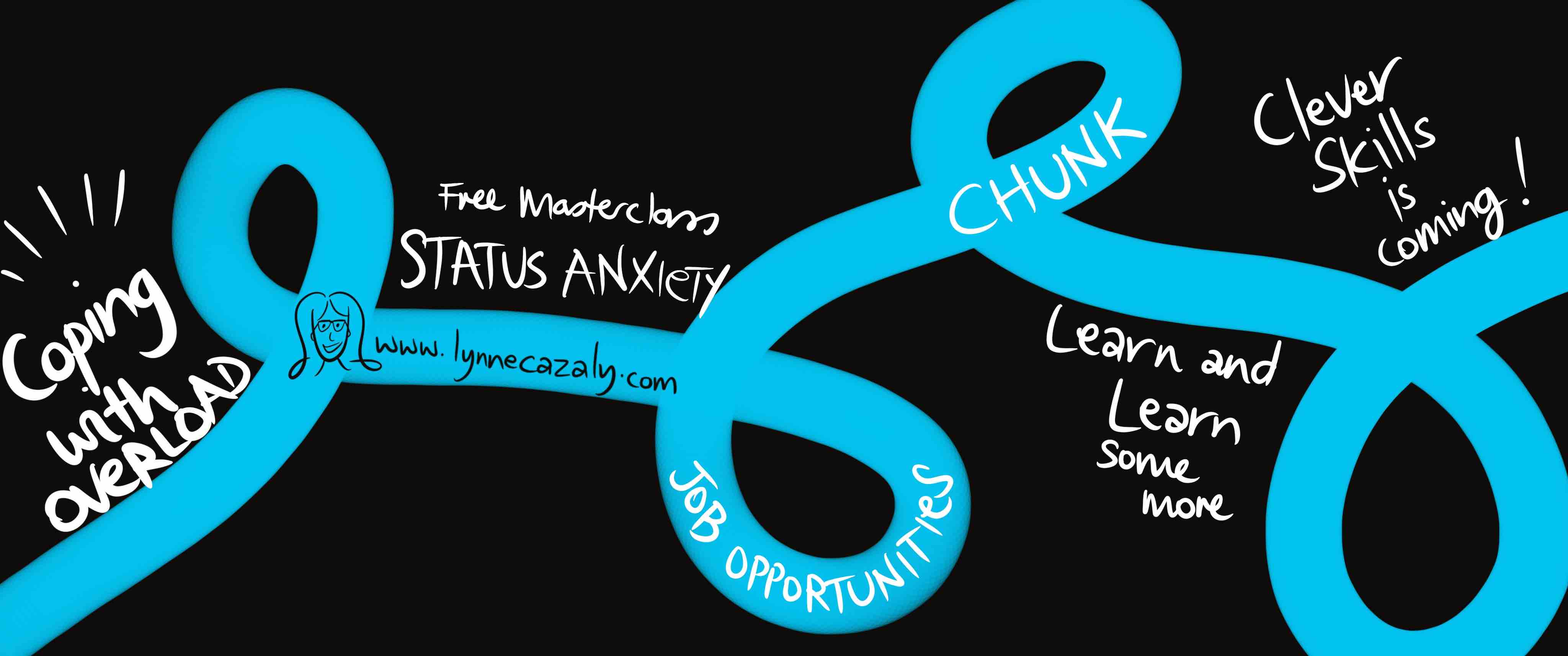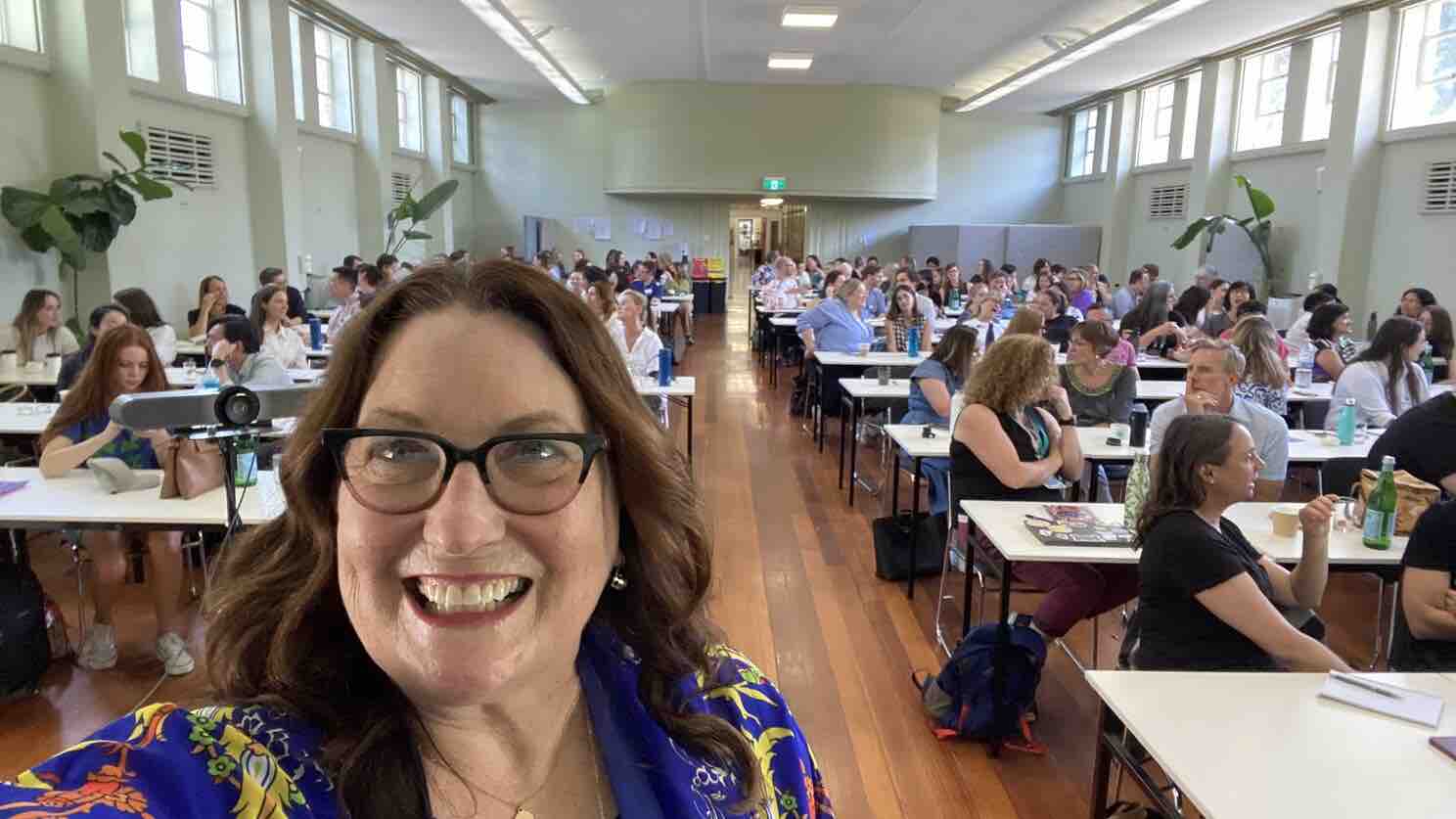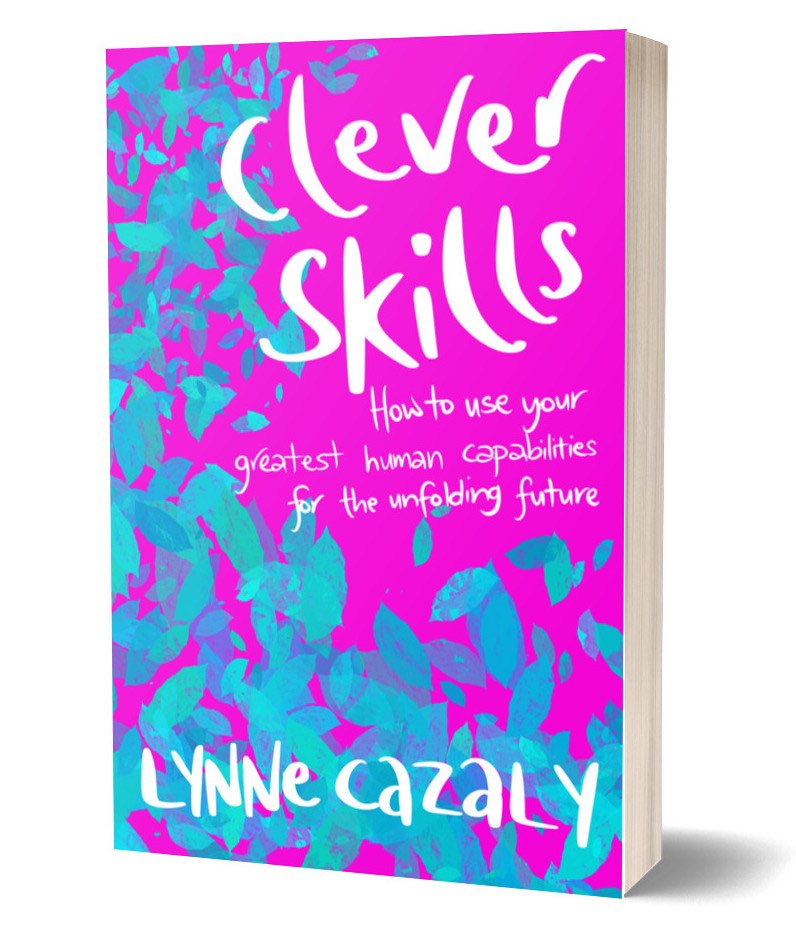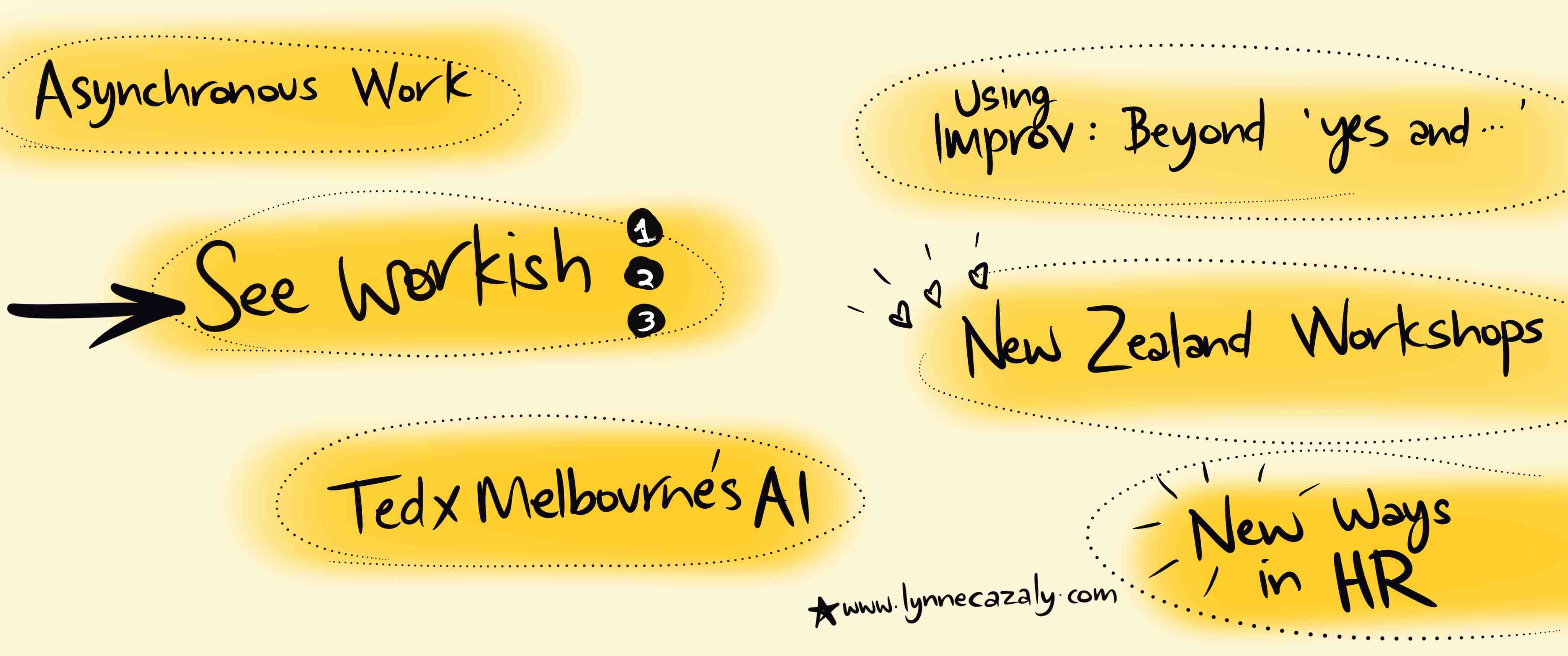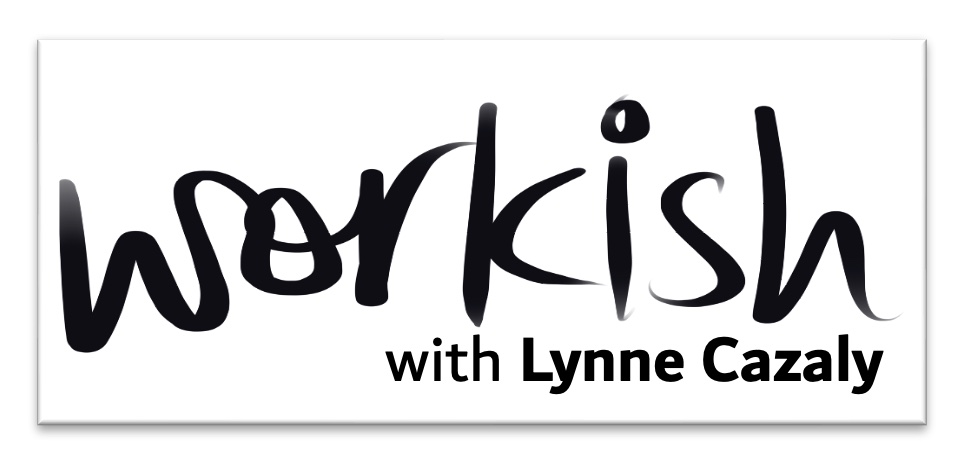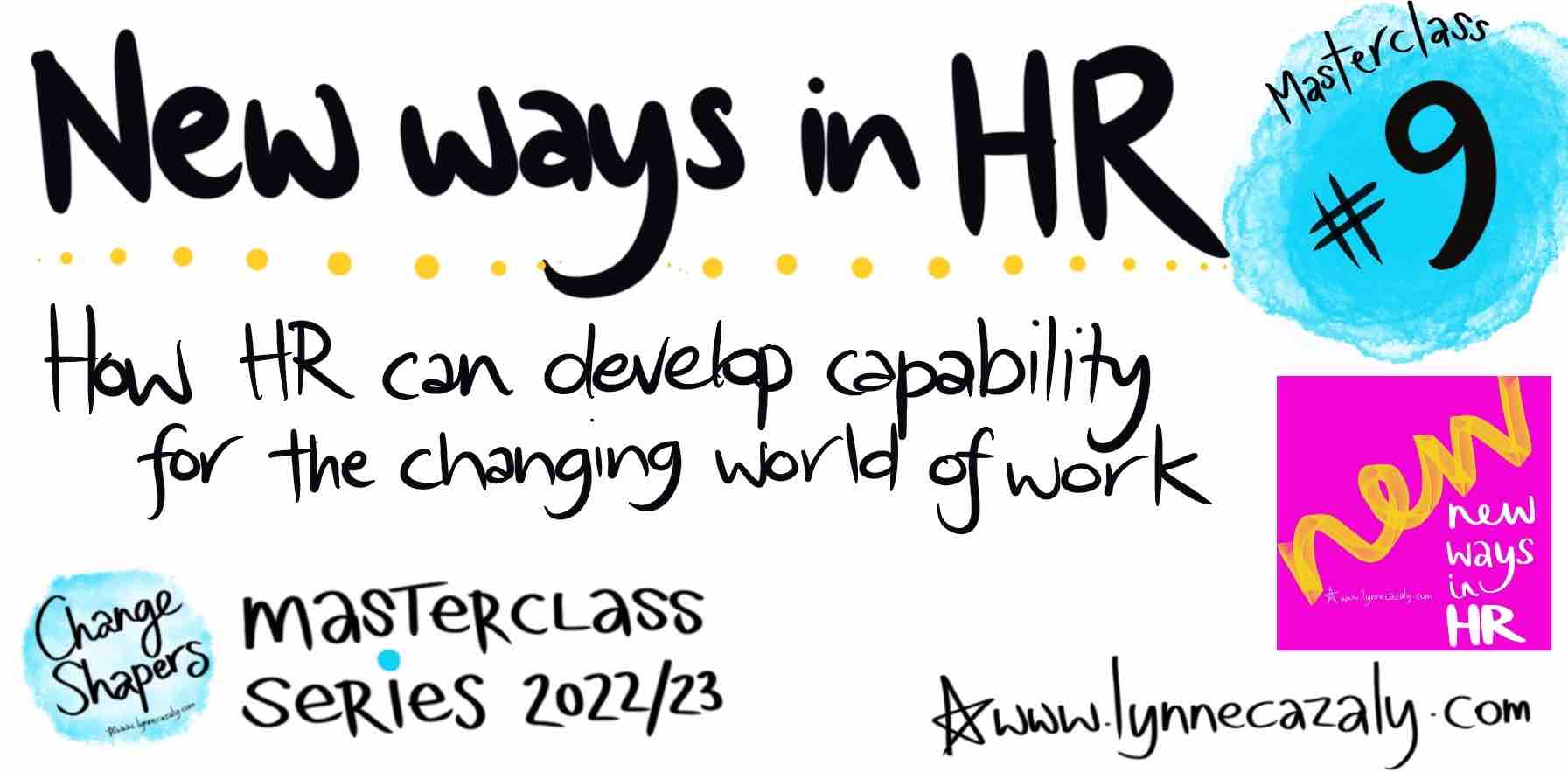Magic leaders/Avoiding mediocre/Meeting boredom/DIY PD/Yawns, funnels and perfectionism/Exhibition
 Thursday, November 7, 2024 at 1:22PM
Thursday, November 7, 2024 at 1:22PM  The magic missing in leaders
The magic missing in leaders
Brainstorming might have been replaced with ideation, but even ideation can bring on a bit of a consultancy cringe. So what then?
How do you bring people together and help them work well? How do you help them be creative, collaborative, respectful? What would you call that?
This article talks about ‘collective flow’ from Csikszentmihalyi’s flow (if you haven’t read or listened to his work, you’re missing a wonderful insight to your own creativity ... and life).
You can create the conditions for flow to be more likely to happen and some of the keys are explained here.
Most of all, this quote is the one for me :
‘Teach senior management facilitation skills so they can guide the process and keep the group aligned and engaged.’
It’s not that meetings are bad. It’s that the meeting leader hasn’t created the conditions for good, collaborative work to occur.
I like the idea of collective flow. It’s moving towards trying to describe the magic that great leaders can help create in teams and businesses that’s so needed today.
The 9 techniques for DIY leadership training
If professional development for your leadership skills is a bit thin on the ground where you work — or you’re struggling to find time or budget to get yourself off to a leadership course — these techniques could help.
Rather than relying on a pre-canned external program to build skills, check off this list of 9 skills and look through the suggestions on what and how to build the techniques.
You could have the perfect professional development program right here!
Here they are:
1. Sharpen your memory
2. Leverage neuroplasticity
3. Optimize decision making
4. Enhance emotional intelligence
5. Harness the power of neurotransmitters
6. Improve stress management
7. Foster creativity
8. Develop adaptability
9. Hone intuition.
There are some absolute crackers in that list. Read ‘em again!
Small developments in just a couple of these areas could make some big differences to how you perceive work, how you perform and how your career might pan out.
Read more in this piece from Fast Company by Lydia Dishman on what actions to take for each skill. Brilliant!
How to avoid being a mediocre leader
It’s everywhere. Plenty of employees can attest to it. Boards and senior leadership teams may deny it or worse, be unaware of it or bluffed by it.
And many leaders experience it - they feel they haven’t got a clue what they’re doing.
It’s the opposite to exceptional leadership : mediocre leadership. There’s a gap and disconnect — leadership has moved on, but many leaders haven’t caught up.
We continue to develop leaders on a mediocre, vague and “narrow set of attributes and traits, such as action orientation (a predisposition to act before fully thinking things through) and relationship building (connecting to people because of a mutual liking of each other).”
This TIME article is worth a read about how we need to make a shift to smooth out the disconnect.
We need to refresh our perspective of leadership and what it means to lead in a modern workplace. You know the one … it’s overflowing with multiple generations, diverse needs and changing conditions.
Five fresher talents are suggested - and I’m here for them:
Setting Direction
Harnessing Energy
Exerting Pressure
Building Connectivity and
Directing Traffic.
Many people who hold leadership positions potentially shouldn’t; not without a refresh and update in their development. Time is up on the dated insecurity, incompetence and insistence of "I’m a good leader, really I am, just watch me do the leady-leadership thing.”
Are they bored in your workshop or meeting
Scanning the faces and body language of the stakeholders and participants in your meeting and you notice … a yawn! And then another.
Perhaps you wonder how to engage everyone as it looks like you’re losing them. Maybe an energizer or a break or a change in pace? But you might just have reached a brilliant point of cohesion and success and not even know.
We can wonder when people yawn in our meetings or workshops if the experience is boring or the activity isn’t working or they’re not engaged or that we’re not good at our job.
But careful what you judge and assume in observing reactions and behaviours. In our more recent remote times when almost every meeting was online, many people pushed for ‘cameras on’ so they could take in the group’s collective body language and ‘connect’. It persists today where we want to (or need to ?) observe what’s happening with the group to know if we’re doing the right thing.
Maybe this is what we wonder:
Are people bored?
Is anyone yawning?
What will I do to wake them up or energize them?
I’ve reviewed, assessed and mentored many leaders and facilitators who jump in to running ‘energizers’ and ‘interactive games’ when they see a group member or two yawn, thinking the energy in the room needs to be boosted. But there could be more going on.
This article summarizes some recent thoughts about why we yawn. And a more surprising reason could be that we are actually not bored or tired but … synchronizing in context, with the group.
It could be the REVERSE of what you’re thinking.
It could be a great sign of safety, comfort, alignment or participation in a meeting or workshop rather than the boredom, disengagement and judgement we might otherwise land on them — and ourselves!
It may not be about you. It may not be about them. It could be the situation, topic, experience, or it might just be a group behaviour.
Read more in this piece by Astrid Thébault Guiochon in The Conversation.
Oh and yes, it could also be a boring as sh*t meeting, so you might want to do something about that. Broaden your thinking about why people might yawn in your conversations, workshops and meetings.
Sucked into the funnel
I’ve been dropping in to people’s sales funnels over recent months and the techniques are many but mostly the same, including
- fake friendliness
- selling via messaging/chat
- masterclasses that only sell the bigger program
- massive price reduction from $xxxx to $xxx
- automated everything
- ‘kiss kiss love you lots’ messaging,
and so much more.
Times are tough and markets may be a little quiet so new techniques are being tried by many. But some of these sequences are the next era of junky scamming in their thinking that ‘if I cast the net wide enough, I’ll get the numbers I need’ or ‘If we pump enough random names into the top of the funnel, some will get stuck.’
And this is not to comment on the quality of the offer. I’m sure the content and how it’s delivered will be “game changing”.
What do you think [first name]? 😁
Love to hear your pet funnel lead gen peeves — so we can keep a wise mind on the alert to the evolving tactics of persuasion/influence/manipulation.
Why perfectionism isn't the key to success
Once you’ve answered the question ‘what is the meaning of life’, the next one you might want to tackle is ‘what’s the key to success’?
It’s going to be different for everybody and what makes meaning for you, the environment you’re in and how you like to be.
When it comes to chasing perfectionism though, success can feel as elusive as perfect.
There’s always another target to strive for, or another benchmark or standard to reach and exceed.But that’s an old way of thinking, working and leading.
I loved this conversation with Business Together Nicky & Ness on their podcast ‘Thrive in Business Together’ — which they clearly do! — about how chasing perfectionism may not get you to or make you feel as successful as you could be.
The dated rut of meeting procedure
Have you been in a gathering recently where
▫️one or few people were doing all the talking
▫️you didn’t contribute much
▫️you got to say yes or no, head nods and thumbs up gestures…
▫️and then time was up and you moved on to the next topic or meeting? 😩
It’s a sure sign your meeting/team/organisation and leader is in a rut of history.
Meeting procedure persists as a power structure in today’s workplaces, based on rules and systems from historical parliaments and legislators; from an era where control was the priority.
And while it might still be needed for formal committees and decisions, boards and officialdom, its time is up for the day to day meetings and work we do.
The problems we experience in workplaces like power struggles and imbalances, interruptions, dated thinking, exclusion, competitiveness, cynicism and fear can tend to be held exactly where they are with old structures like meeting procedure.
Frequently passed off as facilitation, meeting procedure is for meetings that seek to formalise, control, restrict and contain.
Facilitation is instead a way of making things easier. And yes, while a procedure or structure might make things easier for the meeting leader, it usually doesn’t for the participants.
Constraints are good to consider as lighter boundaries, suggestions and guides. They’re not as forceful and controlling as structures, systems and procedures of the past.
We can cling to and defend meeting procedure because we don’t know that easier and more modern ways exist. Or perhaps we want to reinforce and retain the control of what those dated ruts do to people.
My Solo Art Exhibition titled 'Being in the Moment'
I've been making some art, combining sticks, vines, creepers, branches, leaves and flowers and making abstract pieces. It's combining my creativity, with uncertainty, ingenuity to use whatever I can find that's fallen from trees or blowing down the street or lying on a footpath. And it's a relaxing and almost meditative activity.
If you're in Melbourne, please visit during the exhibition or join me on the Celebration with the Artist day on Sunday October 20, 1 - 3pm.



















